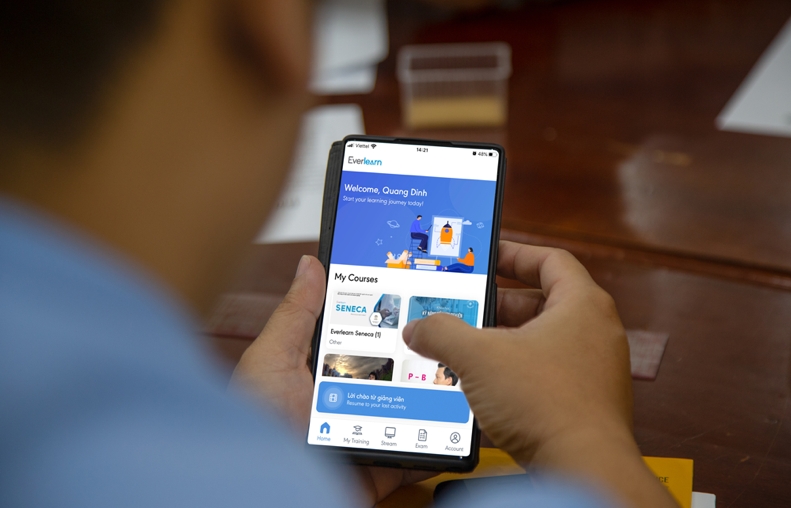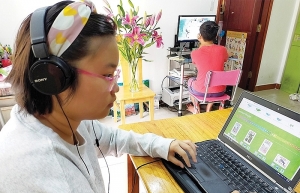Vietnam approves Education Society Scheme in 2021-2030 amid digital transformation
 |
| E-learning during COVID-19 |
Under the scheme, all people have an equal education opportunity and access to an open, diversified, flexible, and modern education system.
The scheme aims to have 100 per cent of cities and provinces providing universal education for preschool children by 2030; 70 per cent achieving universal primary school education; and 40 per cent achieving universal education at the secondary junior school level.
In addition, the scheme targets that by 2030, 90 per cent of universities will apply digital education and develop digital learning materials. Meanwhile, 80 per cent of secondary schools, continuing education facilities, and vocational training facilities, and others conduct management, teaching, and learning in the digital environment.
The scheme sets a number of tasks and solutions to achieve these targets. They include increasing people's awareness about lifelong learning and developing an education society in the context of the development of the digital economy and digital society.
It also directs that a draft law on lifelong learning by studied and built while checking and building policies to support community education centres, especially those in island, remote, and mountainous areas.
It also urged the preparation and proposal of policies to create favourable conditions for labourers to get retraining, and upskilling, as well as promoting lifelong learning among retirees, household workers, and the disabled.
The scheme also enhances digital transformation and IT application in lifelong learning activities. Specifically, boosting IT and digital technology application to increase operational efficiency of tertiary education facilities, vocational training establishments, and others, and developing open education materials to serve lifelong learning on education TV channel.
What the stars mean:
★ Poor ★ ★ Promising ★★★ Good ★★★★ Very good ★★★★★ Exceptional
Themes: Digital Transformation
- PM sets five key tasks to accelerate sci-tech development
- Ho Chi Minh City launches plan for innovation and digital transformation
- Dassault Systèmes and Nvidia to build platform powering virtual twins
- Sci-tech sector sees January revenue growth of 23 per cent
- Advanced semiconductor testing and packaging plant to become operational in 2027
Related Contents
Latest News
More News
- Tet event in Japan celebrates success of 14th National Party Congress (January 25, 2026 | 10:04)
- 14th National Party Congress wraps up with success (January 25, 2026 | 09:49)
- Congratulations from VFF Central Committee's int’l partners to 14th National Party Congress (January 25, 2026 | 09:46)
- List of newly-elected members of 14th Political Bureau announced (January 23, 2026 | 16:27)
- 14th Party Central Committee unanimously elects To Lam as General Secretary (January 23, 2026 | 16:22)
- List of members of 14th Party Central Committee announced (January 23, 2026 | 09:12)
- Highlights of fourth working day of 14th National Party Congress (January 23, 2026 | 09:06)
- Press provides timely, accurate coverage of 14th National Party Congress (January 22, 2026 | 09:49)
- Press release on second working day of 14th National Party Congress (January 22, 2026 | 09:19)
- Minister sets out key directions to promote intrinsic strength of Vietnamese culture (January 22, 2026 | 09:16)






 Tag:
Tag:

























 Mobile Version
Mobile Version